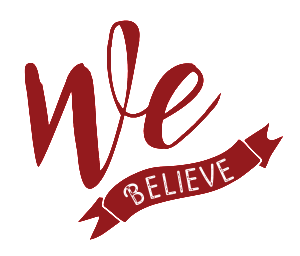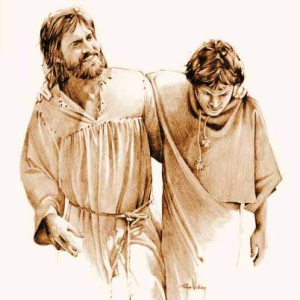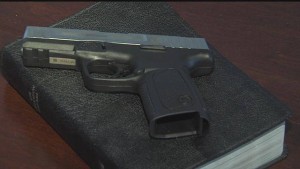 “This is eternal life: that they may know you, the only true God, and Jesus Christ, whom you have sent.” ~John 17:3
“This is eternal life: that they may know you, the only true God, and Jesus Christ, whom you have sent.” ~John 17:3
In today’s postmodern world in which the accepted truth is that there is no truth at all, we can’t take for granted anymore the articles of the Christian faith. Biblical literacy is low. Doctrinal literacy is low. There is a tremendous need for the Church to refocus the center of our faith, to get a better grip on our true identity as Christ-followers. We’ve got to get clear on our core. It occurs to me that the best way to keep from being blown by every wind of doctrine is to have a doctrine.
So, yesterday here at Central, we began a year-long exploration of the ancient Apostles’ Creed.
I know, I know; I know what you’re thinking. We don’t do creeds in the Church of Christ. In our faith tradition it’s always been, “No creed but Christ!” That, ironically, is one of our better known creeds. We have traditionally rejected human creeds because “We call Bible things by Bible names and do Bible things in Bible ways.” Again, that’s one of our hardest held creeds. Funny, huh?
All individuals and communities function from a center of belief and practice. These core beliefs that inform and guide a group’s values and behavior can usually be summed up in a short statement: a creed. A statement of belief. Whether they’re written down or not, everybody’s got them. Democrats and Republicans have their creeds. So do Cowboys fans and Hindus, labor unions and college sororities, civic clubs and sovereign nations. Christians aren’t the only ones with creeds — everyone’s got creeds.
And I think Christians wanting to summarize and write down and memorize the specifics of the faith can be clearly seen in the Scriptures. The apostle Paul is very particular about what Christians need to believe and how they need to believe it.
“If you confess with your mouth, ‘Jesus is Lord,’ and believe in your heart that God raised him from the dead, you will be saved.” ~Romans 10:9
Several places in 1 John make it clear that being a Christian doesn’t just mean believing in Jesus, but believing certain things about Jesus. If you deny that Jesus is the prophesied Jewish Messiah, then you’re denying God. You’re a heretic or, as the passage says, an anti-Christ (1 John 2:22). You have to believe that Jesus came to earth in the flesh and blood of a human being or you don’t have God; you don’t have his Spirit (1 John 4:2-3). There are summaries of the faith throughout the pages of the Bible in Deuteronomy 6, Ephesians 4, 1 Corinthians 15, and 1 Timothy 6 to name a few. These statements clarify the truth and sweep away any false beliefs. Believing the right things in right ways is important. Scripture is very serious about rebuking false teachings and holding to the “pattern of sound teaching.”
The Apostles’ Creed is one of these ancient summaries. Outside of the Bible, it’s the earliest known version of a summary statement of the Christian faith. It goes all the way back to the late second century when candidates for baptism were asked to publically confess their core beliefs on the way into the water. Hippolytus writes the words down in 215 AD as if the Church has been reciting them for years. So, it’s old: really, really old. Technically, it’s older than the New Testament canon. Yes, the New Testament gospels and letters had already been written when the Church adopted the Apostles’ Creed. But the ink was still wet. In fact, the church councils used the Apostles’ Creed to help guide them as they were deciding which books belonged in the New Testament and which ones didn’t. After all, the creed had been faithfully recited by the Church for more than a hundred years at that point. So it played a major role in the canonical process.
Now, I’m not actually preaching the Apostles’ Creed. We’re using the creed as a guide while we preach the Bible. The Apostles’ Creed is not the authority. It has no authority in and of itself. It’s like the moon. The moon is awesome to look at. The moon is beautiful and inspiring, we write songs and poems about the moon. The moon doesn’t have any light in and of itself. But it tells me there’s a light out there.
The Apostles’ Creed reflects the light of the Word of God: the written Word, the Scriptures, and the incarnate Word, Jesus Christ.
It’s ancient. It’s good. And it’s strong. It affirms the unshakable beliefs of the Christian faith: only one God, the divinity of Jesus, the birth, death, and resurrection of Christ, the coming judgment, the Holy Spirit, the one Church, the forgiveness of sins, and eternal life. It’s timeless. It’s withstood all the tests. We’re memorizing it and reciting it in our families and in our assemblies. And it’s going to be good for us.
Peace,
Allan





Recent Comments